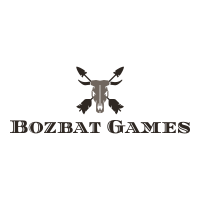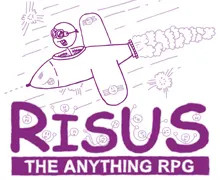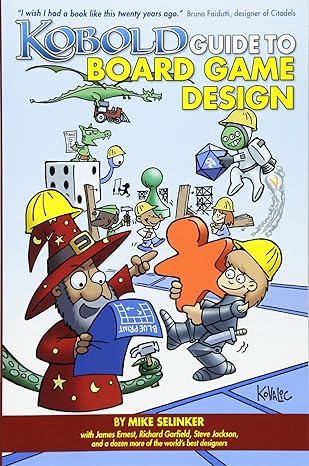Risus: The Anything RPG is a complete pen-and-paper roleplaying game. It is versatile and is suitable for spur-of-the-moment one-shots and rapid character creation, as well as potentially supporting longer campaigns. It has a history spanning over two decades and is supported by an enthusiastic global community.
Clichés and Character Creation
The core of the game revolves around character Clichés. Clichés are defined as a shorthand for a type of person, implying their skills, background, social role, and more. Examples of Clichés can range from traditional RPG character classes like Wizard or Detective to more unusual or specific concepts like Ghostly Pirate Cook or Giant Monster Who Just Wants To Be Loved For His Macrame – essentially, anything you can talk your GM into. Each Cliché is rated in six-sided dice. A rating of three dice is considered “professional,” one die is a “putz,” and six dice signify “ultimate mastery”.
Character creation in Risus is presented as simple and fast: players name and describe their character, then assign dice ratings to their chosen Clichés. A new character typically starts with 10 dice to distribute among their Clichés, with the first Cliché listed usually being the Primary Cliché. For beginning player characters (PCs), Clichés generally may not be rated higher than four dice, though the GM has the flexibility to modify these parameters.
Clichés imply a character’s abilities and equipment, referred to as Tools of the Trade. These tools are considered “free” as part of the Cliché but are vulnerable to loss or damage. Losing a key tool can potentially limit a Cliché’s effectiveness, sometimes reducing its dice rating temporarily (e.g., a Hirsute Barbarian operating at half-dice without his blade). Special equipment can provide benefits like Bonus-Dice Gear, allowing extra dice rolls.
Game Play
The game uses a straightforward system for resolving actions. Whenever a character attempts something that isn’t automatic and isn’t actively opposed by someone else, the player rolls dice equal to the rating of the relevant Cliché. To succeed, the total rolled must equal or exceed a Target Number (TN) set by the GM. Target Numbers range in difficulty from a “cinch” (TN 5) to “nearly superhuman difficulty” (TN 20) or even “actual superhuman difficulty” (TN 30). The appropriate TN can vary depending on the Cliché being used, and characters can attempt any action, with the difficulty adjusting accordingly.
Combat in Risus is a very broad concept. It is defined as any contest where opponents jockey, attack, defend, and wear each other down to achieve victory, literally or metaphorically. This can include traditional physical fights but also extends to things like arguments, horse-racing, seduction, courtroom antics, or even dueling banjos. When combat begins, players take turns making attacks, which should be roleplayed or described entertainingly. An appropriate Cliché is used, and both the attacker and defender roll dice. The low roller loses the round and loses one die from the Cliché they used for the remainder of the fight, representing them being weakened or worn down. A character is defeated if a Cliché is reduced to zero dice. The winners of a combat get to decide the fate of the losers, as long as it makes sense in context. Players can switch between different Clichés each round if appropriate. Dice lost in combat are regained after the combat ends.
Special Mechanics
A notable mechanic is the use of Inappropriate Clichés. If a character uses a Cliché that the GM deems inappropriate for the current type of combat (e.g., using “Hairdresser” in a physical fight), they can still make the attack if they roleplay or describe it in a very entertaining and plausible way. The risk/reward is unique: if the inappropriate Cliché wins a round against an appropriate one, the losing opponent loses three dice instead of one. If the inappropriate Cliché loses, it only loses one die normally.
The game also supports Teaming Up. This can involve nameless NPC hordes represented as Grunt-Squads with a single high-dice Cliché, or Character Teams made up of PCs and/or significant NPCs. In Character Teams, there’s a Team Leader (highest relevant Cliché). All team members roll dice, but only the Team Leader’s dice fully count, with others contributing only any sixes they roll. When a team loses a round, a single team member’s Cliché is reduced; a volunteer suffers double the dice loss (two or six dice) but grants the Team Leader a double-dice bonus on their next roll, while an assigned loss is single-dice with no bonus.
For sudden conflicts that don’t involve extended jockeying, Single-Action Conflicts (SACs) are used. This is resolved with a single dice roll using an appropriate (or entertainingly inappropriate) Cliché, with the high roller winning. The GM has the discretion to switch between using Target Numbers, full Combat, and Single-Action Conflicts depending on what best suits the situation and pacing.
If a character finds themselves in a Combat or SAC where they have no applicable Cliché at all, the GM might grant them two free “brevet dice” for a temporary, generic Cliché specific to that conflict, allowing them to participate. This brevet dice rule applies only to Combats and SACs, not Target Number rolls.
There are also several Advanced Options that GMs can incorporate, such as:
- Lucky Shots: Spending character creation dice to buy single-use dice boosts.
- Hooks & Tales: Gaining extra character creation dice by giving a character a significant flaw (Hook) or a written backstory (Tale).
- Pumps: Temporarily boosting a Cliché roll by accepting a larger dice loss afterward.
- Character Advancement: Rolling challenged Clichés at the end of an adventure; rolling only even numbers results in a permanent increase of one die (up to 6). Spectacular actions mid-game might also allow instant advancement rolls. Dice earned can also be used to add entirely new Clichés.
Conclusion
Overall, Risus is a flexible, rules-light system emphasizing quick character creation and versatile conflict resolution. Its core mechanic using Clichés and dice rolls, combined with the broad definition of “combat” and the possibility of using “inappropriate” skills creatively, encourages player imagination and adaptability in various scenarios, from simple tasks against a TN to complex, possibly absurd, confrontations. The explicit statement, “There’s No Wrong Way To Play!”, reinforces this philosophy of openness and flexibility.
Risus: The Anything RPG can be found at: https://www.drivethrurpg.com/en/product/170294/risus-the-anything-rpg?affiliate_id=474082
More information about Risus: The Anything RPG, along with many free adventures and supplements can be found at:
https://www.risusiverse.com/



